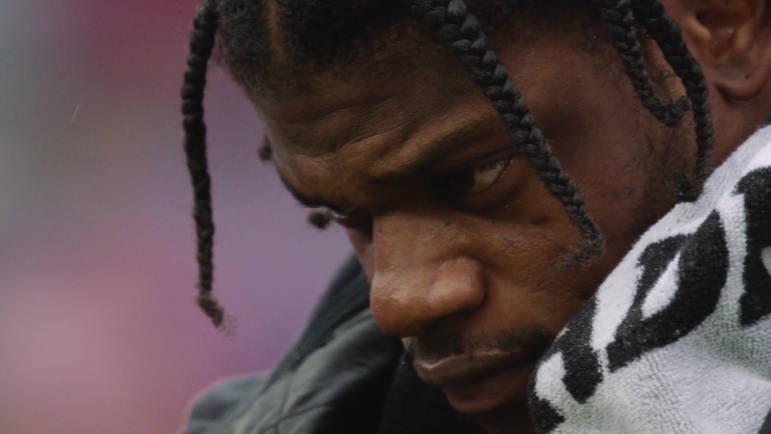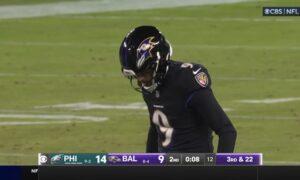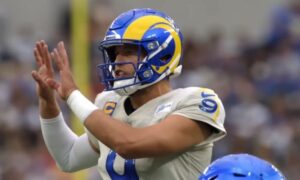Here’s an interesting notion: what if the Baltimore Ravens drafted Will Levis at 22nd overall in the first round, the quarterback out of Kentucky, had they failed to get a deal done with their own quarterback, Lamar Jackson, in the hours leading up to the draft?
According to Jeremy Fowler of ESPN, it was a consideration, he believes, discussing the matter in a recent Insider article. After the top three quarterbacks were gone in the first four picks, nobody else drafted the position in the first round, with Levis slipping to 33, the second pick in round two.
But why on earth would the Ravens have used a first-round pick on a quarterback while negotiating with their own quarterback? It’s not so far-fetched. For one thing, it would have been a great bargaining chip for leverage. You go back to Jackson and tell him, “Look, we’ve got a quarterback now. Go see if you can find a better deal”.
Jackson, as you will remember, was given the non-exclusive franchise tag, which allowed him to talk with other teams and for other teams to talk with him. He said that some teams did reach out but, even though he announced himself that he requested a trade, he never wanted to play anywhere else.
But a first-round pick is a pricy bargaining chip—right? Well, a quarterback is always valuable. If, say, they finalized a deal with Jackson in June, they would still have had Levis as a commodity that could be traded.
The Tennessee Titans had already traded up to get Levis, and even, oddly, the Indianapolis Colts were talking about the possibility of drafting him, having already drafted a quarterback in the first round. For trading back eight spots, the Houston Texans got back a 2024 third-round pick and improved their 2023 third-round pick by nine slots.
Although not quite the same, the New York Giants in 2004 drafted quarterback Philip Rivers, hoping to parlay that into part of a trade with the San Diego Chargers for quarterback Eli Manning, whom they drafted with the first pick.
The commonality in both cases is the fact that the Ravens and the Giants would both have secured an option at quarterback while providing an avenue to completing the transaction they were hoping for all along, understanding that the intermediate step taken was itself a valuable commodity.
The Arizona Cardinals were able to trade quarterback Josh Rosen after one season, getting back second- and fifth-round picks for him. And Rosen’s rookie season was bad. Baltimore could have let Levis sit on the bench for a year and may have been able to recoup a first-round pick for him, potentially.
But they got the deal done, or at least agreed to in principle, before the draft kicked off. And they picked up another wide receiver for Jackson in the first round, taking Zay Flowers to add to the free agent signings of Odell Beckham Jr. and Nelson Agholor.
But just imagine a scenario in which that deal wasn’t yet in place, and the Ravens were on the clock. Imagine if they actually drafted Levis. That would’ve sent ripples throughout the league. And perhaps it might have even prompted a busy night for Jackson to wrap up his deal. And maybe we would have seen Levis get dealt the next night.








